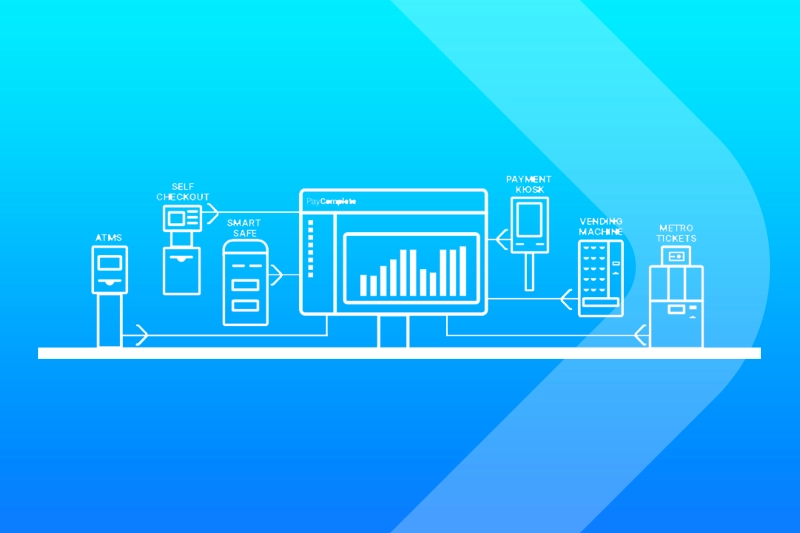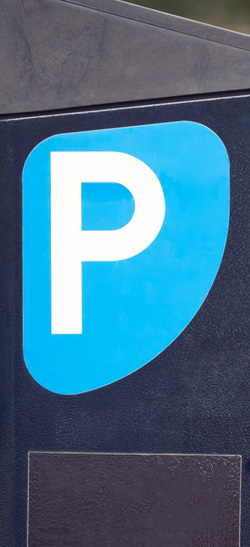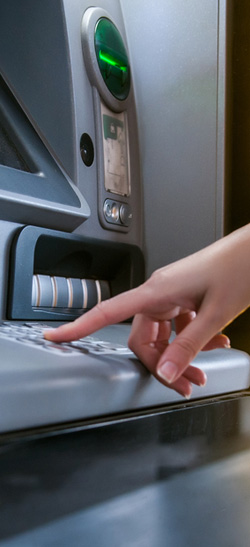Warren Buffett once said:
“Cash is to a business as oxygen is to an individual: never thought about when it is present, the only thing in mind when it is absent.”
Digital and mobile payments are becoming more popular. So, the disadvantages of physical cash appear more obvious and the advantages increasingly less.
This makes it more important to maintain a clear perspective. In this article, we take a deeper look at both the advantages and disadvantages of cash payments.
What is a Cash Payment?
A cash payment is a transaction where physical currency – such as paper money and coins – is used to exchange goods or services. When you hand over cash at a store or pay a service provider with physical money, you are making a cash payment.
Despite the rise of digital wallets and electronic transfers, cash payments remain a widely recognised and popular payment method for completing transactions.
Cash payments offer immediate value exchange without relying on technology or a financial institution. This makes them especially useful in environments where digital systems are unavailable or unreliable.
Interestingly, the concept of cash payments has a rich and fascinating history. For centuries, humans have used various physical items as currency. Long before paper money became common, societies relied on objects like ingots (oblong metal pieces), iron rings, cowrie shells (small sea snail shells), whale teeth, and even large carved stones. These early forms of cash were valued for their scarcity, durability, and cultural significance.
By the late 20th century, modern cash in the form of standardised coins and banknotes had become the dominant medium of exchange worldwide.
Cash Payments & Cash Management
As a physical payment method, cash has always required physical processes – collectively known as cash management (not to be confused with cash flow management). This includes authenticating, counting, storing, transporting, and other activities necessary to handle cash securely and efficiently.
While it may seem straightforward to store cash in a safe or vault, effective cash management becomes more complex as cash operations scale. For businesses handling large volumes of cash, such as retail stores, maintaining accuracy, security, and operational efficiency is critical.
PayComplete offers advanced cash management solutions that streamline and secure every stage of the cash-handling process. Additionally, our technology enables real-time tracking and reporting, giving businesses greater visibility and control over their cash operations.
By leveraging PayComplete’s innovative solutions, businesses can enhance security, reduce labor costs, and improve cash flow visibility, making cash management both simpler and more efficient at any scale.
Advantages of Cash Payments
Widely Accepted
In many countries, cash is wifely accepted. Nearly every business and individual is sufficiently equipped to handle cash transactions.
After all, on a small scale at least, it ultimately requires no or low special infrastructure or equipment.
On a larger scale, the infrastructure and equipment for cash transactions are well-known. After all, many people have heard of cash registers, safes, and cash in transit (CIT) vehicles.
Immediate Settlement
Accepting cash transactions provides businesses with immediate settlement for goods or services.
Once the payment has been made, there is no need to wait for additional processing or for the funds to clear. Physical cash is then immediately available to reuse with the next customer or investing the cash advance in new stock, etc.
This is unlike electronic debit card transactions and credit card payments, which can take several working days – and payment processing partners like card issuers – to be settled.
Privacy
Paying in cash offers a higher level of privacy than electronic transactions.
Cash provides a level of anonymity for the buyer and seller, which is valuable in an era where data security and privacy are increasingly becoming a concern.
Some consumers feel that third parties’ abilities to track spending habits and income levels can lead to intrusive tracking and advertising practices.
Transaction fees
Some electronic payment methods, such as using credit cards and debit cards, usually incur additional fees, such as annual fees. But cash transactions typically do not.
This makes them more cost-effective for both the buyers and sellers involved in transactions.
Dependency on Technology
Accepting cash does not rely as heavily on technology, such as credit card machines or internet connections. This can help in situations where technology to accept payment is unavailable or impractical to set up.
However, smart hardware and precision software is critical when it comes to handling physical cash, once payment has been accepted.
PayComplete offers advanced cash management solutions that combine intelligent hardware with sophisticated software, enabling businesses to automate cash handling, improve accuracy, and enhance operational efficiency. These solutions help reduce errors, streamline cash processing, and provide real-time insights into cash flow, ensuring seamless integration with existing business operations.
Budgeting Control
Paying with cash can help individuals manage their budgets and spend more effectively.
When using cash, people are limited to only spending only the amount of money they physically have on hand. This reduces the risk of overspending and impulse purchases.
Research by the University of Notre Dame even found that cash use is linked to specific psychological states. One research said:
“I think a lot of consumers — particularly those who diligently track their card expenses – recognise that they use cash so they don’t have to think about certain purchases again. In fact, this strategy of using cash to hide purchases from ourselves if we feel bad about them is something my co-authors and I admitted to doing ourselves.”
Fraud Risks
Cash transactions generally carry lower risks of fraud than digital credit and debit card payments. There is no risk of hacking or identity theft associated with physical cash.
Therefore, cash transactions offer increased fraud protection for both customers paying with cash only and businesses accepting it.
Overdrafts
Cash transactions eliminate the risk of overdrawing from a bank account. This is a concern with interest charges that can be associated with some digital payment methods.
The simpler tracking physical cash enables also means people are less likely to unknowingly find themselves overdrawn.
Financial Inclusion
Cash can promote financial inclusion, especially in areas with limited infrastructure.
It can be essential for individuals who do not have access to banking services, such as a checking account or savings accounts, or electronic payment methods.
Emergency Circumstances
In cases of emergency, electronic payment systems can be disrupted for a short period.
Cash can then become vital in these instances, with it being the only means of obtaining essential goods and services.
Disadvantages of Cash Payments
Security Risks
Like all payment methods, there are cons of cash. Carrying and storing large amounts of cash comes with its risks.
Carrying cash can attract thieves or robbers. It can also be easily lost.
Traceability & Records
The lack of an electronic trail and account information can make it increasingly difficult to monitor and track spending patterns in the long run.
This lack of traceability can be a disadvantage for those who rely on detailed financial records for budgeting, tax purposes, credit history, or expense tracking.
Manual record-keeping can be cumbersome and may lead to errors or oversights, especially when compared to the automated record-keeping provided by electronic payment systems provided by financial institutions.
Large Transactions
For significant transactions, such as purchasing high-value items or making large payments, handling cash becomes impractical.
The physical bulk and weight of large amounts of cash can be inconvenient. It can require accurate and quick money counting efforts and perhaps even the use of cash recycling machines.
Counterfeiting
Counterfeit cash has a long history. It has persisted wherever cash has existed, despite punishments – in medieval England, it even carried the punishment of hanging, drawing, and quartering. And it still persists today.
To reduce losses from counterfeiting, businesses can use counterfeit detection technology to verify banknotes, checks, ID cards, and passports.
Not Always Accepted
Today, some vendors, especially in urban or technologically advanced areas, may prefer or exclusively accept electronic payments.
However, in the UK, for example, new powers have been granted to the FCA by the Financial Services and Markets Act 2023. It means designated banks and building societies will need to assess gaps in access to cash.
Remote transactions
Physical cash is not always suitable for remote or long-distance transactions.
This limitation is particularly inconvenient in scenarios such as online shopping, bill payments, or any transactions with parties located far away.
International transactions
Physical cash is an even less efficient and cost-effective option for international transactions.
Its disadvantages include the inconvenience of carrying enough money within and across borders. This becomes particularly important when the conversion leads to different volumes of physical cash.
Rewards
Unlike certain other payment methods, cash does not often have secondary benefits.
Unlike digital money which offers incentives such as cash back when using credit cards or retail specific reward points.
Conclusion
Cash payments remain one of the most widely used payment methods across Europe, offering key benefits such as universal acceptance, immediate settlement, and zero transaction fees.
However, cash also presents challenges, including security risks, lack of traceability, inconvenience for large transactions, and limitations in cross-border payments. As technology advances, many of these challenges can be mitigated through innovative cash management solutions.
PayComplete provides comprehensive cash management systems that enhance security, improve operational efficiency, and enable seamless tracking of cash flow. Our advanced hardware and software solutions help businesses manage cash with greater accuracy while reducing the risks associated with handling physical currency.
With evolving regulations and consumer preferences, it is crucial for businesses to adopt smarter cash-handling practices. Discover how PayComplete can streamline your cash management processes and future-proof your payment operations. Contact us today to learn more.

Related Posts








